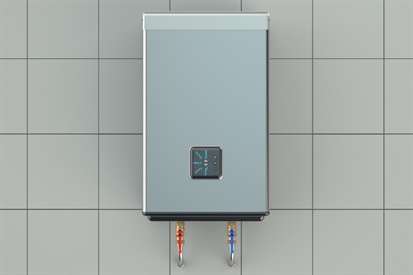Drain Pro Plumbing Explains: Benefits of Installing a Tankless Water Heater

When considering an upgrade to your home's water heating system, a tankless water heater is a modern and efficient solution that offers numerous benefits. Unlike traditional storage tanks, these units heat water on demand, reducing energy usage and offering endless hot water supply when you need it.
In this article, Drain Pro Plumbing explains everything you need to know about tankless water heaters. We’ll explore how they save energy, the necessary maintenance requirements, whether they can meet the demands of a large home, their lifespan, and the cost of installation. Read on to discover how a tankless water heater can transform your home’s hot water experience!
How Does a Tankless Water Heater Save Energy?
A tankless water heater, also known as an on-demand water heater, saves energy by only heating water when it is needed. Traditional water heaters continuously maintain a large tank of hot water, which leads to standby heat loss as energy is consumed to keep the water warm, even when it’s not in use. Tankless units, on the other hand, activate only when a hot water tap is turned on, eliminating standby losses.
Most tankless systems use advanced heating elements, such as gas burners or electric coils, that instantly heat water as it flows through the unit. This results in energy efficiency gains of up to 30-40% compared to conventional tank systems, depending on water usage and household size.
For smaller homes or homes with intermittent hot water usage, this can translate to significant energy savings over time. In fact, many tankless models are also equipped with energy-saving features, such as modulating burners and thermal efficiency ratings exceeding 90%.
What Are the Maintenance Requirements for Tankless Systems?
Regular maintenance is essential to ensure the longevity and efficiency of a tankless water heater. The primary maintenance task for these systems is descaling or flushing the unit to remove mineral buildup caused by hard water. Over time, minerals like calcium and magnesium can accumulate within the heat exchanger, reducing efficiency and potentially damaging components.
For households with hard water, it is recommended to flush the system at least once a year. This involves connecting a descaling pump and circulating a vinegar solution or a commercial descaling agent through the unit to dissolve any buildup. Installing a water softener or scale prevention system can further reduce maintenance frequency.
Regular checks of filters, vents, and gas lines are also necessary to ensure safe operation. By adhering to a proper maintenance schedule, homeowners can prevent costly repairs and maintain peak performance for years to come.
Can a Tankless Heater Provide Enough Hot Water for a Large Home?
Yes, a tankless water heater can meet the hot water demands of a large home, but proper sizing is critical. Unlike traditional systems, tankless heaters are rated by flow rate, which is measured in gallons per minute (GPM). For larger households, multiple units or higher-capacity models may be necessary to ensure sufficient hot water supply during peak usage times.
For example, running multiple showers, a dishwasher, and a washing machine simultaneously can quickly exceed the flow rate of a single tankless system. In such cases, installing a whole-house tankless water heater or combining several point-of-use units can effectively handle the load and maintain consistent water temperature.
Choosing the right system depends on your household's water usage patterns, plumbing setup, and energy source (gas or electric). A professional assessment can help determine the appropriate size and configuration to meet your needs efficiently.
What Is the Lifespan of a Tankless Water Heater?
Tankless water heaters typically have a longer lifespan than traditional tank-based systems. On average, a well-maintained tankless unit can last 20 years or more, while conventional water heaters usually need replacement after 8-12 years. This extended lifespan is largely due to the absence of a storage tank, which reduces the risk of rust and corrosion.
High-quality materials, such as stainless steel heat exchangers and advanced components, contribute to the durability of tankless systems. Regular maintenance, including descaling and filter cleaning, further extends their operational life by preventing wear and tear.
In addition to their longevity, many manufacturers offer extended warranties on tankless water heaters, providing peace of mind and long-term value for homeowners.
How Much Does a Tankless Water Heater Cost to Install?
The cost of installing a tankless water heater varies based on factors such as unit size, fuel type, and installation complexity. On average, the total cost ranges between $2,000 and $4,500, including both the unit and professional installation. Gas-powered models tend to be more expensive than electric ones due to the need for proper venting and gas line upgrades.
For homes switching from a traditional tank system, additional expenses may include modifications to plumbing, electrical connections, or gas lines to accommodate the new unit. While the upfront cost is higher, the energy savings and extended lifespan of tankless systems often offset this investment over time.
To get an accurate estimate, consult a licensed plumber who can assess your home's needs and provide a detailed cost breakdown. Drain Pro Plumbing offers expert guidance to help you make an informed decision.
Switching to a tankless water heater offers significant benefits, including energy savings, a longer lifespan, and a continuous hot water supply for your home. For expert advice and professional installation, contact Drain Pro Plumbing online or call us at 952-469-6999 to get started today!